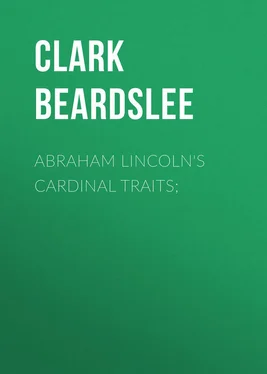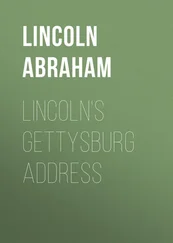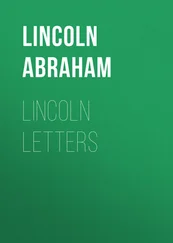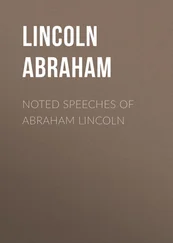Clark Beardslee - Abraham Lincoln's Cardinal Traits;
Здесь есть возможность читать онлайн «Clark Beardslee - Abraham Lincoln's Cardinal Traits;» — ознакомительный отрывок электронной книги совершенно бесплатно, а после прочтения отрывка купить полную версию. В некоторых случаях можно слушать аудио, скачать через торрент в формате fb2 и присутствует краткое содержание. Издательство: Иностранный паблик, Жанр: foreign_antique, foreign_prose, на английском языке. Описание произведения, (предисловие) а так же отзывы посетителей доступны на портале библиотеки ЛибКат.
- Название:Abraham Lincoln's Cardinal Traits;
- Автор:
- Издательство:Иностранный паблик
- Жанр:
- Год:неизвестен
- ISBN:нет данных
- Рейтинг книги:3 / 5. Голосов: 1
-
Избранное:Добавить в избранное
- Отзывы:
-
Ваша оценка:
- 60
- 1
- 2
- 3
- 4
- 5
Abraham Lincoln's Cardinal Traits;: краткое содержание, описание и аннотация
Предлагаем к чтению аннотацию, описание, краткое содержание или предисловие (зависит от того, что написал сам автор книги «Abraham Lincoln's Cardinal Traits;»). Если вы не нашли необходимую информацию о книге — напишите в комментариях, мы постараемся отыскать её.
Abraham Lincoln's Cardinal Traits; — читать онлайн ознакомительный отрывок
Ниже представлен текст книги, разбитый по страницам. Система сохранения места последней прочитанной страницы, позволяет с удобством читать онлайн бесплатно книгу «Abraham Lincoln's Cardinal Traits;», без необходимости каждый раз заново искать на чём Вы остановились. Поставьте закладку, и сможете в любой момент перейти на страницу, на которой закончили чтение.
Интервал:
Закладка:
But in that war the havoc and disaster were mutual. Both sides suffered terribly. The conflict dealt out torture that neither party could evade. It was mighty ponderings on these conditions that wrung from Lincoln's heart the heart of this inaugural, wherein he traces with a humble, deep-searching carefulness the cause of all the war to that prolonged infraction of the law of liberty in the lot of the American slave; and the guilt of that enormous sin to North and South alike; and the moral explanation of the sorrows of the war to the judgments of Almighty God.
Herein he learned that among freemen freedom is in no sense arbitrary and absolute. Laws lie in its very being. Their presence is spontaneous indeed, as is every impulse of their promulgation and rule. But they must be obeyed. If their self-framed mandates are disobeyed, then freemen are no longer free. If freemen dare to bind and rob their fellows and aggrandize their own advantages, then the yoke they bind on other men, by a sanction no mortal can escape, will be bound upon their own necks, until their false advantages are all surrendered, and the freedom that is claimed by anyone is given equally to every other man. To the fulfillment and preservation of that law Lincoln freely bowed his life. This is the core of this address. Thus Lincoln illustrates true liberty. In the crucible of war was his vision of the worth of freedom finally refined. It was through a costly sacrifice of peace. But it was alone and all for freedom, for freedom and for nothing else, that his peace and ours was sacrificed.
This exposition of Lincoln's pure ideal of independent, virile manhood has embraced, in passing, a phase of the vast environment in which he felt his manhood framed, that calls for separate remark – the relation of his human freedom to the rule of God. The war is traced in this address to a threefold origin: it was projected in the resolution of the South that slavery should be given leave to spread; it was accepted in the decision of the North that the present bounds of slavery should not be passed; the whole affair was overturned, and the war was over-ruled in the purpose of Almighty God, that North and South, as a single Nation, guilty in common for slavery as a national sin, should make full requital for all its cruelty. In this thought of Lincoln, the conflicting purposes of the North and the South, and his own determination too, were being made to bow beneath the mightier dominion of Almighty God. In the realm of human politics this is a rare and notable confession. And that it was published beneath the open sky, at noon, before a peopled Nation's open eye, as a thoughtful explanation of his inaugural oath as president of a mighty government upon the earth, must be conceded to mightily enhance its notability. It lacks but little of rising to the rank of prophecy. But equally notable with its publicity is its conscious, free submissiveness. Clear to discern, he is also prompt to own the over-mastering rule of God. His attitude in this inaugural is an attitude of explicit subordination to a higher power. But it is clear as day that this subordination is voluntary. There is no sign of reluctance or unwillingness, as though he were being forced, not even though all expectations of his own were being over-ruled in the inscrutable plans of God. This address reveals this man in a mood and tone of complete submission, ready for rebuke, surrendering all his ways to God. This posture of acquiescence, in God's revolution of his plans, and reconstruction of his hopes, is the factor to notice here, as we examine the actual operation of Lincoln's will. Above his private liberty, above his high official authority, above the great Republic in which his own decisions merge, reigns the hidden hand of God. To the power and majesty of that unseen sway he summons every dignity and every desire of his own to render unreserved obedience.
In seeing and saying this, however, one must never omit to observe and add that Lincoln's eye observed with solemn joy a precious moral meaning in the divine omnipotence. Heaven's unexpected guidance and consummation of the war were only adding clarity and emphasis to the principle of liberty. It only drove the demonstration home, and that with irresistible cogency, that human bondage must be avenged. And so in fact Lincoln's solemn reverence for the divine control was a girdle confirming the strength of the fine jealousy that guarded for himself and for all mankind the sacredness and the majesty of the human will. Within the deeper deeps of his own free preference he coincided and co-operated with the will of God. His obedience to God, his allegiance to his civic covenant, and his individual, cherished preference coalesce ideally; while each, without any diversion or loss, preserves its own integrity.
Thus with life-exhausting, sacrificial toil, with genuine originality, ever exemplifying in his chastened life all the burden of his thought, by a decisive choice between divergent paths, with the careful deliberateness of a full-grown man, with unconquerable determination, gravely sensible of every ponderous consequence, in unbroken and intimate companionship with all his fellow-men, with vision sharp to detect and uncover every simulation and counterfeit of his wish, through solemn fellowship with redemptive sorrows, bowing without repugnance to every sanction that free equality enjoins, and in humble reverence for the all-commanding, all-subduing will of God, Lincoln here unfolds the central and infolded implications in his all-consuming jealousy to be free.
His Kindliness – Love
A genuine and generous goodwill to other men breathes warmly through this second inaugural, as the glowing breath of life pervades the bodily frame of a living child. This manifests itself, as seen in his impassioned zeal for freedom, in a vivid consciousness of companionship. He felt his life and destiny interlaced inseparably with all Americans, nay with all the world of human kind. With this widely expanded and ever expanding Republic, he felt himself in these inaugural scenes peculiarly identified. In that great pageant he was deeply sensible of holding the central place. His inaugural oath, though his single, individual act, announced his conscious purpose to be the Nation's head. In that station his person became supremely representative. It was for him to incorporate nobly, mightily, judicially, the national dignity, authority, and design.
Many phases of this profound coincidence of the life of Lincoln with the Nation's life come into sight whenever his life's career is carefully reviewed. But among all the illustrations of his self-submergence deep within the overflowing fullness of our national history, there is one that demonstrates his tender kindliness beyond all possibility of refutation. This is his profound participation with the Nation in her fate because of slavery. Around this awful issue circles all the thought of this, as of the first address. That this puissant co-efficient of our national history was somehow the cause of the existing war he said that all men felt. He registered his own opinion that all the sorrows of the war were in requital for that sin. Into those sorrows no man entered more profoundly than did Lincoln himself. They sobered all his joy. They solemnized him utterly. It is true few heard his groans. In his patience he was mainly silent. None ever heard him make complaint. All impulse to resentment was subdued. But the nation's sorrows were on his heart. Through all those days he was our confessor, self-sacrificed, sorrow-laden, faithful absolutely, but uncomplaining. Upon his head an angry, unanimous South, and many thousands in the North dealt vengeful, malicious blows, denying him all joy, crying out against him ruthlessly. All this he bore, as though he heard them not, and continued day and night to seek the Nation's peace. With marvelous freedom from malice himself, with fullness of charity for all, he taught a Nation how a Nation's sorrows should be patiently borne. And yet through all the days, in all this land, no man was more purely innocent of the Nation's sin of slavery than this same man. Here is friendship. Here is neighborly compassion written large. This is generosity, untinctured with any selfish reservation. Amid all the sorrows and fortunes of our history no sight is half as pathetic as this deep, free, silent companionship of Lincoln with his Nation's griefs in the deepest period of her affliction. And yet he almost seemed to cherish his fate. He bore it all so quietly, and with such a steady heart and eye, that in his seeming calm we are unconscious of his pain. He gives no hint of faltering and drawing back. He even strove repeatedly to lure the Nation to his side, to enter into sacrificial fellowship with the hapless South. But to nothing of this would the people hear.
Читать дальшеИнтервал:
Закладка:
Похожие книги на «Abraham Lincoln's Cardinal Traits;»
Представляем Вашему вниманию похожие книги на «Abraham Lincoln's Cardinal Traits;» списком для выбора. Мы отобрали схожую по названию и смыслу литературу в надежде предоставить читателям больше вариантов отыскать новые, интересные, ещё непрочитанные произведения.
Обсуждение, отзывы о книге «Abraham Lincoln's Cardinal Traits;» и просто собственные мнения читателей. Оставьте ваши комментарии, напишите, что Вы думаете о произведении, его смысле или главных героях. Укажите что конкретно понравилось, а что нет, и почему Вы так считаете.












